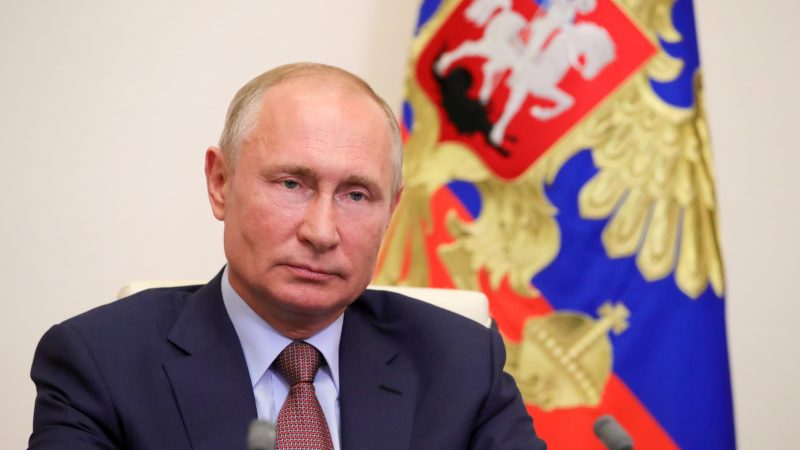
In January 2017, the then-leader of the Labour Party’s spokesperson was asked at a press briefing whether the leader of the Labour Party, Jeremy Corbyn, supported the deployment of British troops to Estonia to strengthen NATO’s eastern flank against Russia. The leader’s spokesperson refused to give Corbyn’s support. However, Nia Griffith, Labour’s Shadow Defence Secretary – supported by myself as her number two – made it clear that the Labour Party’s established position was to support NATO and, therefore, the troop deployment to counter a growing Russian threat.
An almighty row ensued, with both Nia and I making it clear that we would not budge from our position. The result was a papering over of the rift in the short term, but Corbyn never again formally challenged Labour’s historic position. It was pretty clear, though, that Corbyn was prepared to give only lip service to Britain’s membership of NATO.
Things are now very different. Under the leadership of Keir Starmer, the Labour Party has fundamentally reset its whole approach towards foreign and defence policy. No longer can there be any question of Labour’s commitment to NATO membership, nor is there any prospect whatsoever of false parallels being drawn between the foreign policy of the United States and Russia.
Labour is now firmly and unequivocally committed to NATO membership, and with a Labour government, Britain will play an active role with and alongside our country’s allies. Just as in 1949 when Clem Attlee helped create NATO, a future Labour government will be a steadfast and dependable upholder of the alliance.
Estonians are in no doubt Russia poses a threat to their country
It is to reinforce this fresh Labour thinking that Labour MPs and peers established the Labour International Group (LIG) last year. A number of seminar and discussion meetings have been held, and links have been established with like-minded social democrats and progressives internationally. One of the most important relationships is with the German Friedrich Ebert Stiftung (FES), which is closely linked with the German SPD.
It was with the FES that LIG organised a visit a few weeks ago to Estonia. Given Corbyn’s reluctance to support British troops going to Estonia in 2017, the symbolism of the visit was important. The delegation was composed of Catherine McKinnell MP, chair of the Parliamentary Party’s backbench foreign affairs committee, the writer Paul Mason, Gary Kent, a senior Labour Party activist, a representative of the FES and myself as convenor of the LIG.
During an intense couple of days, a diverse series of meetings were held with social democrats, trade unionists, the national defence committee of the Estonian parliament, the NATO Centre of Excellence in Cyber Defence and a respected security think tank. The messages we received, however, were uniform.
Firstly, all the Estonians we spoke to were in no doubt that their country was under direct threat from Russia. A few years ago, Estonia was subjected to a cyber-attack from Russian IP addresses, and today, that threat is becoming ever more apparent. Secondly, there was the clearly held view that Russia sees Estonia as important strategically because of its pivotal position on the Gulf of Finland. Thirdly, everyone that we spoke with was strongly of the opinion that the war in Ukraine must be won by Ukraine. It is accurate to say that the ‘Estonian view’ is that if Russia were able to claim a victory in Ukraine, then Russian aggression will not stop, and Estonia could well be the next country on Russia’s list.
We must stand in full support of Estonia in the face of Putin’s aggression
Undoubtedly, the four of us were enormously impressed with the achievements of Estonia. Its progressive educational advances, the extensive digitalisation of access to public services, its entrepreneurial activity and its determination to remain an independent country.
We were also impressed by Estonia’s historical awareness. The Nazi and Soviet occupations weigh heavily on the country’s consciousness, and nowhere is this more clearly seen than in the Vabamu Museum, in which the realities of daily oppression during occupation are powerfully told through individual stories. History must not be allowed to repeat itself.
When we left Estonia, we were all of the same view. It is vital that we stand full square behind Estonia in its fight against Vladimir Putin’s aggression. Equally, it is imperative that we provide, with our NATO allies, all the support that is necessary for Estonia to remain a free country.




More from LabourList
‘Labour won’t stop the far right by changing leaders — only by proving what the left can deliver’
‘Cutting Welsh university funding would be economic vandalism, not reform’
Sadiq Khan signals he will stand for a fourth term as London Mayor